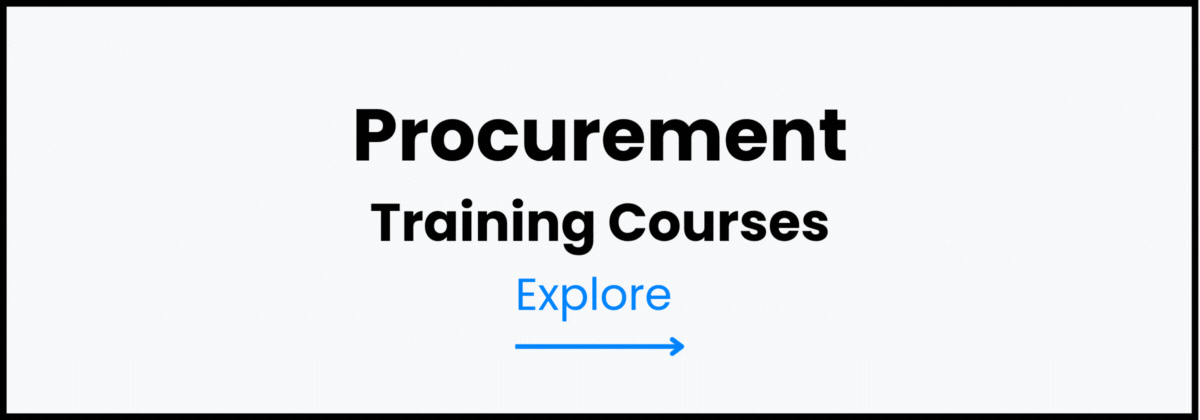What Is Procurement Compliance and Why It Matters
Procurement is not just about acquiring goods and services—it’s about doing so strategically, transparently, and within a defined legal and ethical framework. That’s where procurement compliance comes into play. In today’s increasingly regulated global business environment, procurement compliance serves as a safeguard against operational risks, financial losses, and reputational damage. It ensures that every purchasing decision is aligned with internal policies, industry standards, and legal requirements.
As organizations face greater scrutiny over how they spend and who they partner with, ensuring procurement practices are fully compliant has never been more crucial. This article serves as a complete guide for understanding what procurement compliance involves, its key components, challenges, and how organizations can strengthen it through policy, training, and digital systems.
Professionals looking to deepen their expertise can explore specialized learning through courses such as the Best Practice and Principles of Procurement Course, Category Management in Procurement Course, Combating Risk and Fraud in Procurement Course, and Contracts Management Course. A broader understanding of this topic is also developed through the Procurement Courses category.
Defining Procurement Compliance
Procurement compliance refers to the adherence of procurement activities to established internal rules, industry regulations, and legal frameworks. It governs the entire procurement lifecycle—from planning and supplier selection to contracting, purchasing, and post-purchase evaluations.
In simpler terms, it’s about ensuring that all procurement transactions follow:
- The company’s internal procurement policy
- Local and international regulatory requirements
- Ethical standards and anti-corruption practices
Whether you’re working with suppliers, negotiating contracts, or issuing tenders, procurement compliance guarantees that every action aligns with your organization’s standards of accountability, fairness, and transparency.
Why Procurement Compliance Matters
The importance of procurement compliance extends far beyond avoiding legal penalties. It forms the foundation of responsible corporate governance and supports broader business goals. Here’s why it matters:
-
Reduces Legal and Financial Risks
Non-compliance with procurement laws can lead to lawsuits, regulatory fines, and contract cancellations. Implementing compliant processes helps prevent these costly setbacks.
-
Strengthens Supplier Relationships
When suppliers trust that your procurement processes are fair and consistent, it fosters stronger, long-term partnerships built on mutual respect and reliability.
-
Improves Operational Efficiency
Procurement policies that are consistently followed lead to standardized workflows, fewer errors, and faster processing—saving time and reducing administrative costs.
-
Supports Ethical Sourcing and Sustainability
Procurement compliance enforces ethical sourcing by requiring suppliers to meet certain environmental and labor standards. This is critical for organizations committed to corporate social responsibility (CSR).
-
Enhances Reputation and Stakeholder Trust
Regulators, investors, customers, and employees are more likely to trust companies with transparent and compliant procurement systems—leading to stronger brand equity.
Key Components of a Procurement Compliance Framework
To ensure compliance, organizations should establish a clear framework that governs procurement operations. Key components include:
-
Procurement Policy and Procedures
A documented set of rules that define how procurement should be conducted, including:
- Approval hierarchies
- Thresholds for purchases
- Competitive bidding requirements
- Documentation and reporting procedures
The Best Practice and Principles of Procurement Course explores how to structure these policies for effective implementation.
-
Supplier Due Diligence
A robust vetting process that ensures suppliers meet legal, ethical, and performance standards. It includes:
- Background checks
- Risk scoring
- Compliance certifications
This aspect is particularly critical in regulated industries and high-risk markets.
-
Contractual Safeguards
Contracts must contain clauses that enforce compliance, such as:
- Anti-bribery and corruption policies
- Audit rights
- Performance metrics and penalties
Participants in the Contracts Management Course gain valuable insight into crafting such enforceable clauses.
-
Risk and Fraud Management
Procurement systems must detect and prevent fraudulent activities, such as:
- Kickbacks
- Bid rigging
- Duplicate invoicing
The Combating Risk and Fraud in Procurement Course provides tools and techniques to identify vulnerabilities and reinforce internal controls.
-
Training and Awareness
Compliance starts with people. Regular training ensures procurement teams understand policies, ethics, and industry regulations—reducing the chance of violations.
Common Procurement Compliance Challenges
Despite the best efforts, procurement teams often encounter barriers that hinder compliance:
- Lack of Standardized Processes
Decentralized operations and inconsistent practices across departments can lead to non-compliant purchases.
- Inadequate Oversight
Without real-time monitoring, it’s difficult to detect deviations or unethical behaviors.
- Supplier Misconduct
Even if internal processes are sound, supplier fraud or non-compliance can still expose the organization to reputational and legal risks.
- Technology Gaps
Manual systems increase the likelihood of errors, delays, and fraud. Organizations lacking digital procurement solutions often struggle to maintain compliance.
Addressing these challenges requires a holistic approach—balancing policy, people, and technology.
How to Strengthen Procurement Compliance
Here are actionable steps organizations can take to enhance procurement compliance:
- Update and Enforce Procurement Policies
Regularly review policies to align with evolving legal standards and business goals. Communicate them clearly and ensure strict enforcement across all teams.
- Digitize the Procurement Workflow
Implement automated procurement systems that ensure:
- Approval routing
- Budget control
- Audit trails
- Real-time reporting
Automation helps reduce human error and improves compliance tracking.
- Conduct Regular Audits and Assessments
Periodic internal and third-party audits identify compliance gaps and provide actionable insights for improvement.
- Integrate Category Management
Segmenting procurement into categories allows for specialized compliance controls per category. The Category Management in Procurement Course explains how to structure this model for better governance and cost efficiency.
- Monitor Supplier Performance
Establish KPIs, track delivery timelines, and assess supplier adherence to contracts. Incorporate performance data into future sourcing decisions.
The Role of Leadership in Procurement Compliance
Leadership commitment is vital to embedding compliance into the organizational culture. When senior management demonstrates a zero-tolerance approach to non-compliance, it sets the tone for the entire procurement team.
Leaders should:
- Allocate budget and resources for compliance training and tools
- Participate in procurement policy reviews
- Regularly communicate the importance of ethical procurement
This top-down approach ensures procurement integrity becomes part of the organization’s DNA.
Leveraging Training to Build Procurement Compliance Capabilities
Training is the cornerstone of procurement compliance. Well-trained professionals are more equipped to interpret policies, assess supplier risks, and navigate legal nuances. Relevant training opportunities include:
- Best Practice and Principles of Procurement Course: Builds a solid foundation in procurement governance.
- Category Management in Procurement Course: Supports strategic sourcing and specialized compliance by category.
- Combating Risk and Fraud in Procurement Course: Equips professionals with tools to detect and prevent misconduct.
- Contracts Management Course: Helps ensure contracts legally safeguard compliance commitments.
You can also explore the full range of Procurement Courses to enhance your organization’s compliance capabilities across every function.
Procurement compliance is no longer a regulatory checkbox—it’s a strategic imperative. Organizations that invest in building compliant procurement functions not only avoid penalties and reputational damage but also unlock efficiencies, build stronger supplier relationships, and uphold the highest standards of corporate integrity.
As compliance becomes a boardroom priority, procurement professionals must be equipped with the right knowledge, systems, and leadership support to uphold it. By combining robust policy frameworks, digital tools, and professional development through training, companies can create a procurement function that is efficient, ethical, and fully aligned with organizational goals.
Explore:





